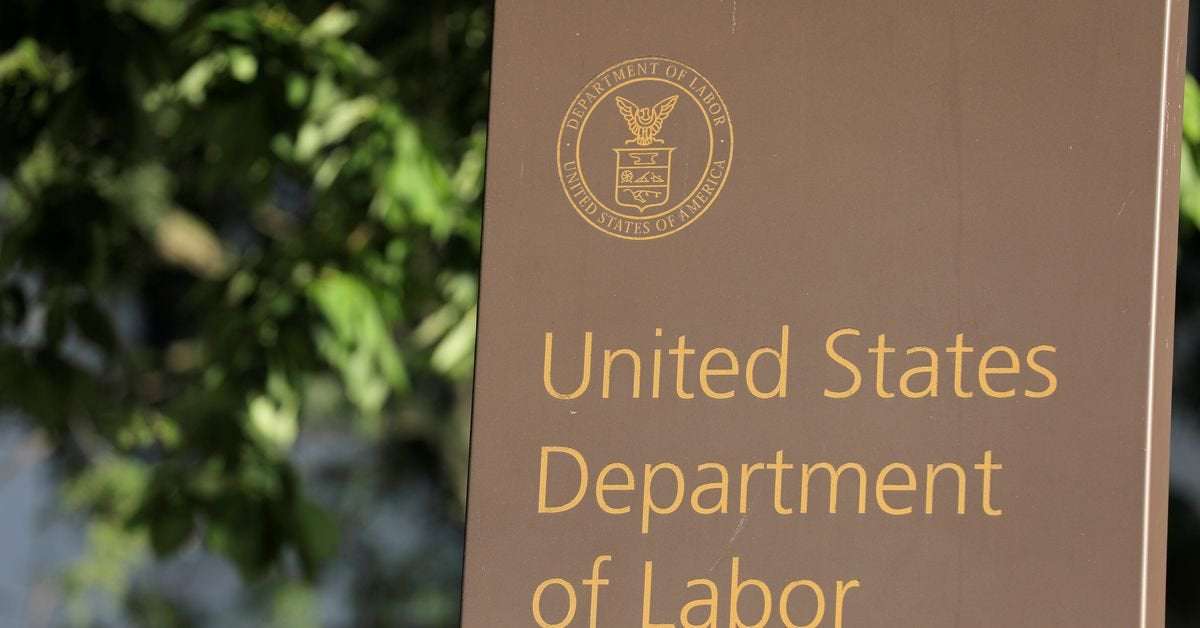Summary Companies Proposed rule sends shares of Uber, Lyft and DoorDash tumbling
Requires 'economically dependent' workers to be employees
Rule will take at least several months to finalize
WASHINGTON, Oct 11 (Reuters) - A U.S. Department of Labor rule proposed Tuesday would make it more difficult for companies to treat workers as independent contractors, a change that is expected to shake up ride-hailing, delivery and other industries that rely on gig workers.
Gig company stocks were hammered by the news, with Uber (UBER.N), Lyft (LYFT.O) and DoorDash (DASH.N) all falling at least 10%.
The proposal would require that workers be considered employees, entitled to more benefits and legal protections than contractors, when they are "economically dependent" on a company. It could have wide-ranging impacts on company profits and hiring, household incomes and worker quality of life.
Register now for FREE unlimited access to Reuters.com Register
The final rule is expected next year, after a 45-day public comment period that begins Thursday.
The Labor Department said it will consider the worker's "opportunity for profit or loss, investment, permanency, the degree of control by the employer over the worker, (and) whether the work is an integral part of the employer’s business," among other factors.
Most federal and state labor laws, such as those requiring a minimum wage and overtime pay, only apply to a company's employees, who can cost companies up to 30% more than independent contractors, studies suggest.
Millions of Americans are working "gig" jobs and this labor has become vital to some transportation, restaurant, construction, health care and other industries.
U.S. Labor Secretary Marty Walsh in a statement said businesses often misclassify vulnerable workers. "Misclassification deprives workers of their federal labor protections, including their right to be paid their full, legally earned wages," Walsh said.
Liz Shuler, president of the American Federation of Labor and Congress of Industrial Organizations (AFL-CIO), said the proposal gives the government the tools to protect workers from the "escalating problem of misclassification."
The proposed rule is the latest move in a politically charged battle that has pitched Republicans and companies against Democrats and worker groups over the past decade. It would replace a Trump administration regulation that says workers who own their own businesses or have the ability to work for competing companies, such as a driver who works for Uber and Lyft, can be treated as contractors.
Solicitor of Labor Seema Nanda, the department's top legal official, said on Tuesday that the Trump-era rule was out of step with decades of federal court decisions.
1/4 Taxis line up next to an Uber pick-up area as Uber and Lyft drivers hold a statewide day of action to demand that both ride-hailing companies follow California law and grant drivers "basic employee rights'', in Los Angeles, California, U.S., August 20, 2020. REUTERS/Mike Blake/File Photo Read More
The new proposal mirrors legal guidance issued by the Obama administration, which was withdrawn under former President Donald Trump.
It also incorporates elements of strict tests in U.S. states including California, which require companies to treat most workers as employees under state wage laws.
More than one-third of U.S. workers, or nearly 60 million people, did some freelance work in the past 12 months, a December 2021 survey by freelancing marketplace Upwork showed.
Seth Harris, President Joe Biden's former top labor adviser, said the rule will not directly impact how courts determine whether workers are employees or independent contractors. Instead it will influence the Labor Department's "own enforcement activities and the position it takes in litigation," he said, allowing the department to argue for a much broader definition of employees under the Fair Labor Standards Act in court.
Worker advocacy groups welcomed the announcement, while employer groups were critical.
Nicole Moore, a part-time Lyft driver and the president of the group Rideshare Drivers United, said it was a "really important step to clarify rules at a federal level," that she hoped would "inspire lawmakers to change laws and clarify and codify against misclassification."
Christina Brown, who drives for Uber and Lyft in Arizona, said she makes $25 to $60 an hour, but describes what she takes home as "minimum wage." Gig workers' pay is eroded by expenses like gas, insurance and car payments.
Brown, however, feels the "government needs to stay out of how the middle class makes money."
Groups including the U.S. Chamber of Commerce, the largest U.S. business lobbying group and Associated Builders and Contractors, argue that any broad rule would hurt workers who want to remain independent and have flexibility.
The National Retail Federation on Tuesday said it "staunchly opposes a change" and called the rule unnecessary. Lyft said it would have "no immediate or direct impact" on its business at this time. Uber asked the administration to listen to workers.
Reclassification of workers as employees "would essentially throw the business model upside down and cause some major structural changes if this holds," Wedbush analyst Dan Ives said in a research note on Uber and Lyft.
Reporting by David Shepardson and Nandita Bose in Washington, Daniel Wiessner in Albany, New York and Nivedita Balu in Bangalore; Editing by Heather Timmons, Mark Porter and Lisa Shumaker
Our Standards: The Thomson Reuters Trust Principles.

hombreguido on October 11st, 2022 at 15:52 UTC »
I have worked at several fancy-pants bulge bracket companies and investment banks and it is cute how they all manage to employ me for years at a time but never allow me to have enough hours to become an employee. Cool trick guys! Why would I need benefits?
Searchlights on October 11st, 2022 at 13:56 UTC »
If I understand this right, it's for 1099 employees. People who are working temporary or contract jobs as W-2 employees already have worker protections, minimum wage and overtime.
Quasigriz_ on October 11st, 2022 at 13:33 UTC »